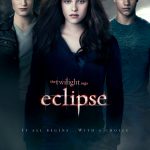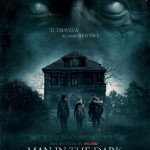The Village (2004)
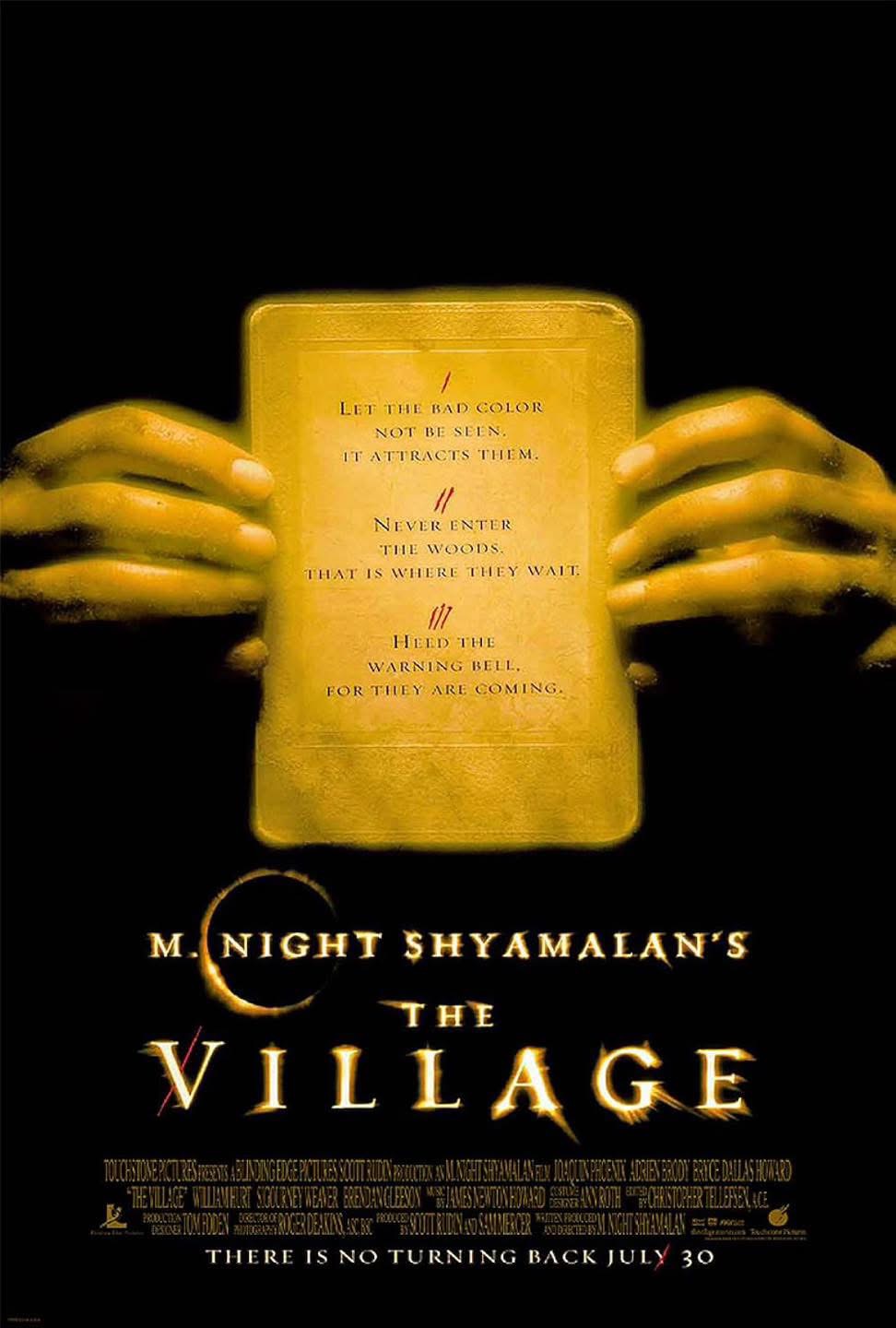
M. Night Shyamalan’s The Village (2004) is a suspenseful and thought-provoking psychological thriller that blends elements of horror, mystery, and drama. Set in a secluded, 19th-century village surrounded by dark woods, the film explores themes of fear, societal control, and the consequences of living in isolation. Known for its twist endings, Shyamalan once again crafts a narrative that challenges expectations and questions the nature of truth and reality.
Plot Overview
The story unfolds in an isolated, Amish-like village where the townspeople live in a self-imposed, seemingly peaceful existence. The village is surrounded by dense, ominous woods, which are inhabited by mysterious, frightening creatures known as “Those We Do Not Speak Of.” The elders of the village, led by the wise but secretive figures of Edward Walker (William Hurt) and Alice Hunt (Sigourney Weaver), maintain strict rules to keep the villagers safe, primarily by warning them never to venture into the woods.
Lucius Hunt (Joaquin Phoenix), a curious and courageous young man, becomes determined to break these rules and venture into the woods to obtain medicine for a deadly illness afflicting one of the villagers. His growing desire to learn the truth about the creatures, along with his blossoming love for Ivy Walker (Bryce Dallas Howard), sets the stage for a series of events that will challenge the very fabric of the village’s society and its deeply held beliefs.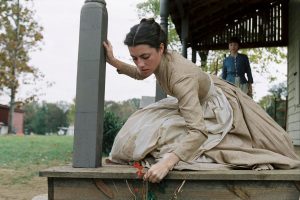
Direction and Cinematography
Shyamalan’s direction is deliberately slow and atmospheric, taking time to build a sense of foreboding and unease. The village itself is a strikingly beautiful yet eerie setting, designed to look timeless and disconnected from the outside world. The film’s cinematography, by Roger Deakins, is rich and evocative, with wide, sweeping shots of the village and surrounding forest that emphasize both the isolation of the characters and the beauty of their surroundings. The muted color palette and the soft lighting give the film an almost fairy-tale-like quality, which enhances its themes of superstition and the unknown.
Shyamalan’s pacing, while deliberate, can feel slow for some viewers, particularly during the first two acts. The atmosphere is thick with tension, but much of the film is driven by quiet, contemplative moments rather than high-stakes action or overt horror. The sense of dread grows gradually, and the audience is invited to get to know the villagers before the true nature of the story is revealed.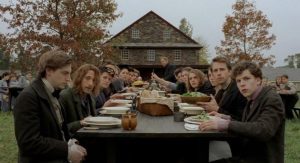
Performances
The ensemble cast delivers strong performances, with Joaquin Phoenix providing a grounded and earnest portrayal of Lucius, a man who is both brave and naïve in his quest for truth. Bryce Dallas Howard shines as Ivy, a blind young woman who is both vulnerable and fiercely determined. Her chemistry with Phoenix adds emotional depth to the film, particularly in the context of their burgeoning relationship.
Sigourney Weaver and William Hurt, as the elder figures of the village, bring a quiet authority to their roles, portraying characters who are both protective and secretive about the village’s past. The performances of these seasoned actors help ground the more fantastical elements of the story and lend a sense of gravitas to the film’s exploration of societal control and fear.
The supporting cast, including Adrien Brody as the troubled Noah and Brendan Gleeson as the village’s leader, also add layers to the narrative. Brody, in particular, gives a chilling performance that is central to some of the film’s key emotional and narrative twists.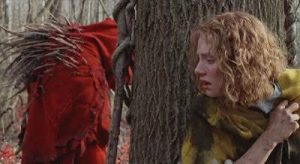
Themes and Symbolism
At its heart, The Village is a commentary on fear, both the fear that is instilled in individuals and the fear that arises from the unknown. The creatures in the woods represent not just the literal danger lurking outside the village, but also the psychological fears that the villagers have been taught to believe in. The film examines how fear can be used as a tool of control, both by individuals and by the community as a whole, in order to maintain order and obedience.
The village itself functions as a metaphor for isolation, where the villagers attempt to shield themselves from the corrupting influence of the outside world, yet find themselves imprisoned by their own limitations. The tension between freedom and control is explored throughout the film, as characters struggle to reconcile their desires for independence with the constraints imposed by their society.
The theme of blindness, both literal and metaphorical, plays a key role in the narrative. Ivy, who is blind, is a symbol of inner sight and emotional clarity, contrasting with the metaphorical blindness of the villagers, who have chosen to live in ignorance of the outside world and the truth about their own situation. The film’s ultimate twist challenges not only the characters’ understanding of their world but also the audience’s perception of what is real.
Critique
While The Village is an atmospheric and well-crafted film, it has been divisive among audiences, primarily due to its pacing and the controversial twist ending. Some viewers find the slow build and lack of traditional horror or action frustrating, while others appreciate the film’s methodical approach and thematic depth.
The film’s twist, while unexpected and thought-provoking, has been a point of contention. Some find it clever and poignant, adding a layer of social commentary on the nature of fear and control, while others feel it undermines the tension and emotional stakes that were carefully built throughout the film. Regardless, Shyamalan’s signature twist endings, which have become both a trademark and a source of criticism, remain a defining characteristic of his work.
Convulsion
The Village is a thought-provoking and atmospheric psychological thriller that explores the power of fear, the consequences of isolation, and the human desire for control. With strong performances, a haunting atmosphere, and a layered narrative, it stands as one of M. Night Shyamalan’s more contemplative works. However, its pacing and the divisive nature of its twist may leave some viewers feeling unsatisfied. For those who enjoy slow-burn suspense and thematic depth, The Village offers a chilling and intelligent exploration of human nature and society.


